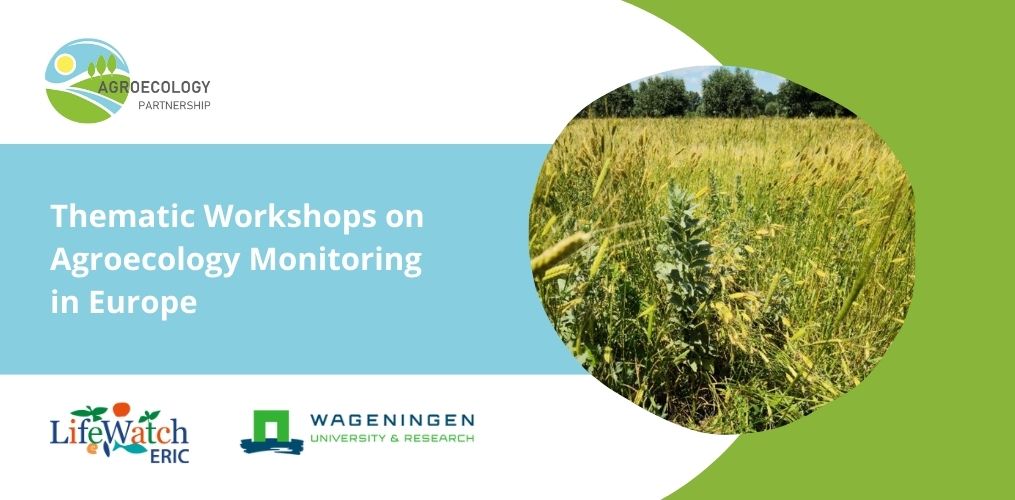
LifeWatch ERIC and Wageningen University & Research are organising a series of online thematic workshops under the AGROECOLOGY Partnership, co-funded by Horizon Europe.
These workshops aim to accelerate the transition towards more environmentally and people-friendly agroecosystems, by promoting the development of reliable monitoring frameworks and tools.
The ICT Core Scientific Team held the first event of the series on 15 October 2024, focusing on the agro-environmental domain.
The panel featured experts from leading organisations, including the European Commission DG Agri, Joint Research Centre (JRC), Food and Agriculture Organisation (FAO), CIFOR-ICRAF, FiBL (Research Institute of Organic Agriculture), and Wageningen University & Research (WUR). Their insights provide important contributions to address the challenges of monitoring agroecological transitions, as this requires scientific rigor and collaborative efforts.
The next events will take place on 25 October, and on 6 November. The series of thematic workshops aims to identify lessons learned and knowledge gaps in agroecology monitoring across different domains, discuss the scales and indicators necessary for effective agroecological transitions, and address data challenges for tracking the social, environmental, and economic impacts of agroecological practices.
The results of these thematic workshop, will converge and set the basis for discussions in the final, in-person workshop, which will bring together experts in agroecology monitoring, AGROECOLOGY partners, and potential end-users of the monitoring framework.
The output of this meeting will be a position paper with the most relevant insights and recommendations, that will be crucial during the design and implementation of the monitoring framework for agroecology under the European Partnership AGROECOLOGY.
About the AGROECOLOGY Partnership
The European partnership ‘Accelerating Farming Systems Transition: Agroecology Living Labs and Research Infrastructures’ is a Horizon Europe-funded initiative. This initiative brings together the European Commission and 72 partners from 26 countries. It aims to enhance the resilience and productivity of Europe’s farming systems through sustainable practices that address climate change and biodiversity challenges.
Learn more at agroecologypartnership.eu.